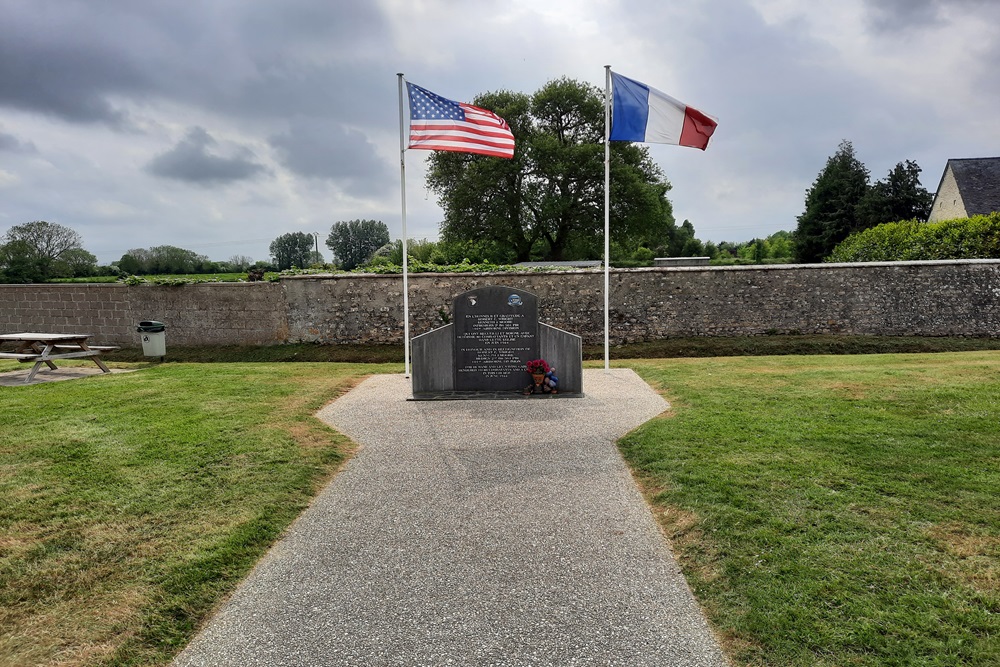Wright, Robert E.
- Date of birth:
- February 9th, 1924 (Ohio, USA)
- Date of death:
- December 21st, 2013 (USA)
- Buried on:
- Grave Sergeant Robert E. Wright
- Nationality:
- American
Biography
Robert Wright joined the 101st Airborne’s 501st Infantry Regiment in 1942 and trained as a medic.
On D-Day, June 6, 1944, he parachuted into Angoville-au-Plain with stretcher bearer Kenneth Moore. Amid fierce fighting, they turned the village church into an aid station, treating over 80 wounded—American and German alike—under relentless bombardment. Their only rule: weapons stayed outside. For 72 hours, they worked alone under fire, marked only by a red cross on the door.
Both were awarded the Silver Star later that month in Carentan, during a ceremony tragically marred by a mortar strike that killed a young girl.
Wright continued his service in Veghel, Netherlands, treating wounded—including five injured nuns—in a convent. During the siege of Bastogne, he set up an aid station in a farm cellar at Bizory, working under extreme conditions.
He remained with the liberation forces until May 8, 1945. Returning home that September, he married Margaret Writsel and raised two children.
After retiring in 1982, he dedicated himself to charitable construction work through the Methodist Church.
Robert Wright passed away at 89 and is buried in Angoville’s churchyard, where his tombstone bears the initials REW—a quiet tribute to a life of service and compassion.
Do you have more information about this person? Inform us!
- Period:
- Second World War (1939-1945)
- Unit:
- Medic, 2nd Battalion, 501st Parachute Infantry Regiment, 101st Airborne Division "Screaming Eagles", U.S. Army
- Period:
- Second World War (1939-1945)
- Period:
- Second World War (1939-1945)
- Period:
- Second World War (1939-1945)
- Period:
- Second World War (1939-1945)
- Period:
- Second World War (1939-1945)
- Period:
- Second World War (1939-1945)
- Period:
- Second World War (1939-1945)
- Period:
- Second World War (1939-1945)
- Period:
- Second World War (1939-1945)
Sources
- - Bando, M., 101st Airborne: The Screaming Eagles in World War II, Zenith Press, St. Paul/Minnesota, USA, 2007
- band-of-brothers.nl
- American War Memorials Overseas











